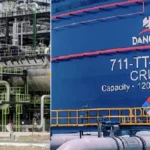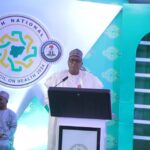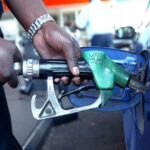The Federal Government has been urged to embark on the full deregulation of the petroleum downstream sector.
Some stakeholders in the oil and gas industry, who spoke with the News Agency of Nigeria (NAN) on Friday in Lagos, said this would reduce the huge amount budgeted for subsidy.
The stakeholders advised government to use the one billion dollars (N305 billion) budgeted for subsidy payment in 2019 to develop other sectors of the economy.
Mr Charles Edward, Executive Director, Matrix Global Nig. Ltd., said that the huge amount budgeted for subsidy payment in 2019 budget could be used to develop other sector infrastructures in the country to boost the economy.
Edward advised government to create “free entry, free exit’’ in the downstream sector to attract investment and grow the economy.
He said that deregulation would bring in investments into the sector and also encourage the establishment of private refineries in the country.
According to him, government should deregulate the sector and remove subsidy from petroleum importation.
“If government likes, they can introduce gradual removal of subsidy but it should not go beyond 6 to 18 months period.
“If fully deregulated with rules, you will have the serious investors coming in to invest adequately,” he said.
Edward said: ”deregulation is the answer and the government must talk to the people and let them understand the advantages.
“Government must also show that in the areas where there was deregulation, people are gaining and that whatever comes in as funds will be used for the benefit of the people.
“Deregulation would also address frequent shortages of products.
“When the sector is fully deregulated, marketers will source for foreign exchange at cheaper rate to import products, not depending on government,’’ he added.
Mr Olufemi Adewole, the Executive Secretary, Depot and Petroleum Products Marketers Association (DAPPMA) emphasised the need for federal government to consider total deregulation of downstream oil sector.
Adewole said that only full deregulations would remove the various challenges in the sector as well as attract investment in refineries in the country.
He added that it would also attract more investment in the transportation and depots to address lingering fuel scarcity as well as boost government’s revenues.
”We, petroleum marketers, would rather encourage the FG to take the bull by the horn and deregulate the downstream petroleum sector fully; this will free up funds presently being expended on subsidies for other social services.
“Deregulation of the downstream sector, though might initially lead to price hike, will eventually go down gradually, manifesting in efficiency, greater competition and price reduction (as a result of costs saved in efficiency).
“Deregulation of the sector will impact on other aspect of the nation’s economy and also enable the Nigeria Railway Corporation to lift more products from the South to other parts of the country at cheaper rates.
“The railway system is faster, cheaper and will deliver more volume at a go than road transportation. This will also attract more revenue to the corporation and also expand their infrastructure’’.
He stated that when investors invest and build more refineries, depots price of petroleum price would drop and this will be to the advantage of the common man.
Another marketer, Alhaji Debo Ahmed, Western Zone chairman of the Independent Petroleum Marketers Association of Nigeria (IPMAN), also stressed the need for the full deregulation of the downstream of the oil sector.
Ahmed said that the pump prices of petroleum products have not been the same even when there was no scarcity.
According to him, full deregulation of the downstream sector will also create better opportunity for marketers to import and sell at cost margin.
“Deregulation remains the best option to drive the downstream business and free government from continuous payment of subsidy.
“For instance, without deregulation in place, the petrol that is being sold for N145 per litre in the south west is being sold for between N250 and N270 per litre in the Northern area,’’ he said.
The IPMAN helmsman said if the sub-sector was deregulated, it would bring in a lot of competition for the government to only fix the price at which the cost of the product must not exceed.
According to him, the continued regulation of the downstream sector has its positive and negative impacts on the economy.
“The subsidy policy cannot be sustained any longer. This is because the subsidy payment did not benefit the poor it was targeting, but rather it is benefiting the rich.
“The industry needs to move to the next level by increasing revenue and curb oil theft and pipeline vandalism,’’ he said.
Meanwhile, President Muhammadu Buhari on Dec. 20 said that the federal government has set aside N305 billion for fuel subsidy payments in the 2019 budget.
Speaking to the joint session of the national assembly in Abuja, the president said the amount would be used to cater for NNPC “under-recoveries”.
“We have allowed N305 billion, equivalent to $1 billion for under-recoveries by NNPC on premium motor spirit in 2019.
“We will continue working to bring it downwards, so that such resources are freed to meet the developmental needs of our people.
“Let me also use this opportunity to address and clarify the under-recoveries or subsidies on petrol in a period of economic challenges. Our purchasing power is weak, we must reduce some of the burden on Nigerians,” Buhari said.
The president went on to explain that subsidies are much more different from what they used to be in the past, stating that the NNPC is the sole importer of oil today.
“The problem in subsidies in the past was abuse and corruption. Today, the government through the NNPC is the sole importer of premium motor spirit.
“Therefore the under-recovery is from the NNPC trading account. This means the possibilities of some marketer falsifying claims are removed,” he added.
The senate recently confirmed that $1.05 billion NLNG dividend to the Nigerian state was also used for fuel imports in 2018. (NAN)

 Join Daily Trust WhatsApp Community For Quick Access To News and Happenings Around You.
Join Daily Trust WhatsApp Community For Quick Access To News and Happenings Around You.


